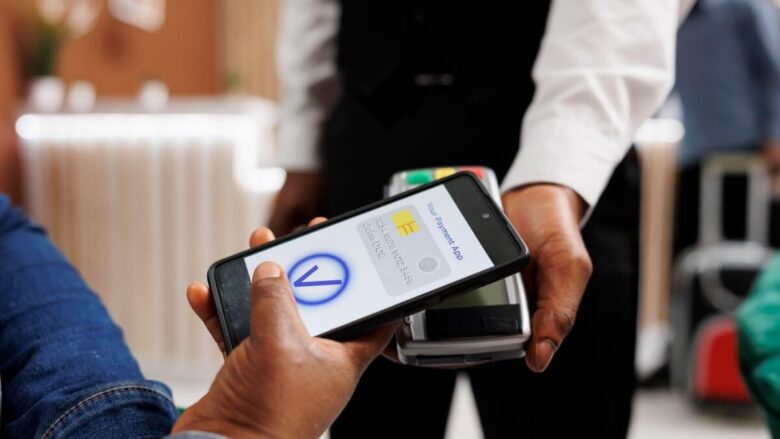Millions of people around the world use digital wallets every day. These wallets securely store your payment information so you can shop, send money, and manage your finances without the need for cash or cards. The convenience and speed of digital wallets are making them increasingly popular, especially thanks to the ubiquity of mobile phones. Digital wallets are used for online, in-store, peer-to-peer, and loyalty program purchases. The best digital wallet for you depends on your needs, device compatibility, security features, and services.
Digital Wallet Features to Consider
There are many important factors to consider when comparing digital wallets. Secure wallets with strong encryption, biometric authentication, and fraud prevention features stand out. Another aspect to consider is smartphone compatibility and connectivity with multiple banks and card issuers. How useful a wallet is for everyday activities depends on its transaction capabilities, such as online payments, contactless payments in stores, bill payments, and peer-to-peer transfers. Rewards, connectivity with other financial apps, and availability can also influence your choice. Understanding these aspects can help you choose a wallet that fits your lifestyle and interests.
Apple Pay:
Apple Pay is a popular digital wallet for iPhone, iPad, and Apple Watch users. Paying with Face ID, Touch ID, or your passcode is easy and secure. Stores around the world accept Apple Pay. The payment method is useful for online payments and, in some places, for public transportation. Apple’s privacy protections are a big plus; no card or transaction details are stored. Apple Pay now enables peer-to-peer payments via Messages, allowing you to send money directly to friends and family. However, Apple Pay only works on Apple devices, which may be disappointing for Android users.
Google Wallet:
Google Wallet (formerly Google Pay) is a digital wallet service for Android and iOS that comes with several limitations. It stores debit cards, credit cards, loyalty programs, transit passes, and e-tickets. Google Wallet is excellent at peer-to-peer payments and can realize rapid transfers. The wallet is compatible with the Google ecosystem, including Gmail and Google Maps. Biometric authentication and tokenization protect card numbers for businesses. Google Wallet is suitable for everyday use thanks to its compatibility with different devices and the wide range of services.
Samsung Pay:
What makes Samsung Pay unique is that it supports NFC and secure magnetic transmission. This makes Samsung Pay compatible with most payment terminals, even those without NFC. Only works with Samsung phones, very convenient, and more often accepted by stores. Samsung Pay offers rewards, contactless payments, and peer-to-peer transfers. For security, tokenization, fingerprints, and iris scans are used. Samsung Pay is the preferred choice for Samsung smartphone customers due to its wide acceptance and strong security.
PayPal:
PayPal is one of the oldest and most trusted digital payment providers, widely used for online shopping, billing, and money transfers. The digital wallet allows users to link bank accounts, credit cards, and cryptocurrency accounts in specific regions. PayPal’s Buyer Protection Policy ensures that online purchases are safe and secure. PayPal’s app and agreements with merchants enable in-store payments. Easy peer-to-peer payments are used all over the world. PayPal’s reputation and network of merchants make it an excellent digital wallet for everyday use.
Venmo:
Venmo is owned by PayPal and offers social peer-to-peer payments. Users can easily send and receive money, post payment activity to their social feeds, and split the bill with friends or roommates. Venmo’s prepaid debit card linked to the wallet can be used anywhere Mastercard is accepted. Venmo is primarily used in the United States, but younger users appreciate the simplicity and social nature of informal payments. Though not as well-known for in-store payments, it can still be used to pay authorized merchants. Venmo’s social engagement and ease of payments set it apart from other digital wallets.
Cash App:
Cash App is another popular digital wallet in the US due to its simplicity and versatility. It allows users to send and receive money instantly, pay bills, and invest in stocks and Bitcoin through the app. The Cash App provides a complimentary Visa debit card, which you can link to your wallet balance. This card can simplify your daily spending on purchases and ATMs. Touch ID, Face ID, and PIN entry ensure security. Users will love Cash App, an all-in-one financial app that combines banking, investing, and peer-to-peer transfers.
Digital Wallet Security Comparison
Digital wallet security is paramount. The most popular wallets encrypt and tokenize sensitive data. Biometric authentication, such as fingerprint or facial recognition, protects the security of the wallet by limiting access to authorized users. Many wallets alert users to unusual activity through fraud detection algorithms. Make sure your smartphone is secure, use strong passwords, and use two-factor authentication if possible. No system is risk-free, but using a reliable digital wallet with strong security can help reduce fraud and theft.
User Experience and Everyday Convenience
How well a digital wallet fits into your daily life determines how well you can use it. Transaction speed, ease of adding cards, and quality of customer service all impact the user experience. Smartphone wallets like Apple Pay or Google Wallet tend to work the smoothest. PayPal and Cash App offer additional financial solutions for those who need more payment options. Rewards, discounts, and loyalty programs can increase the everyday value of digital wallets. Choosing a wallet that is intuitive and fits your needs will increase the enjoyment.
Conclusion
Digital wallets make managing your wealth easier, faster, and more secure. Each of the major digital wallets — Apple Pay, Google Wallet, Samsung Pay, PayPal, Venmo, and Cash App — offers unique features and benefits for different users. Apple Pay offers seamless integration for iOS users, while Google Wallet works across all platforms. Samsung device users benefit from Samsung Pay’s broad acceptance, while frequent online shoppers benefit from PayPal’s merchant network. Venmo’s social payments appeal to younger users, while Cash’s investment features appeal to users of multi-functional financial software. The ideal digital wallet for everyday use depends on your device, security preferences, transaction needs, and functionality. A good digital wallet can simplify your finances and improve your transactions.
FAQs
1. iPhone Users: Which Digital Wallet is Best?
Apple Pay’s easy integration with iOS devices and high security make it an ideal choice for iPhone users.
2. Can I Use International Digital Wallets?
Many digital wallets offer international payment and currency conversion capabilities, but fees vary by wallet and region.
3. Digital Wallets: Are There Fees?
Most digital wallets do not charge fees for basic transactions, but some do charge fees for quick transfers or currency conversions.
4. How Do I Fund My Digital Wallet?
By linking your bank account, debit card, or credit card to a digital wallet app and transferring money regularly, you can grow your wealth.




